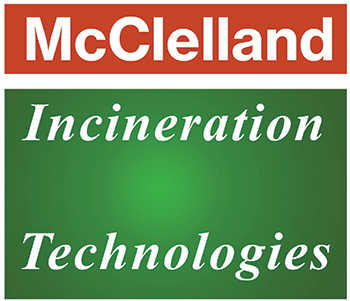 The responsible management of animal waste, particularly animal carcasses and pathological materials, is a critical, yet often underestimated, aspect of public health, biosecurity, and environmental protection. Whether from veterinary clinics, research laboratories, livestock farms, poultry operations, or even zoos, the disposal of animal remains and related waste presents unique challenges that, if mishandled, can lead to widespread disease transmission, environmental contamination, and significant economic losses. Modern incineration technology offers the most secure, hygienic, and compliant solution for this specialized waste stream.
The responsible management of animal waste, particularly animal carcasses and pathological materials, is a critical, yet often underestimated, aspect of public health, biosecurity, and environmental protection. Whether from veterinary clinics, research laboratories, livestock farms, poultry operations, or even zoos, the disposal of animal remains and related waste presents unique challenges that, if mishandled, can lead to widespread disease transmission, environmental contamination, and significant economic losses. Modern incineration technology offers the most secure, hygienic, and compliant solution for this specialized waste stream.
The Diverse Sources and Risks of Animal Waste
Animal waste encompasses a broad range of materials, each with its own set of disposal considerations:
Animal Carcasses: From individual mortalities in farms, domestic pets in veterinary clinics, or large-scale losses during disease outbreaks (e.g., Avian Influenza, African Swine Fever).
Pathological Waste: Tissues, organs, and body parts from surgeries, autopsies, and laboratory analyses in veterinary hospitals and research facilities.
Contaminated Bedding & Sharps: Materials and instruments used in animal care that may be contaminated with pathogens.
Laboratory Animal Waste: Carcasses and waste from research animals.
The risks associated with improper disposal are substantial. Decomposing carcasses can harbor and spread various pathogens (bacteria, viruses, parasites) that can cause zoonotic diseases (transmissible to humans). They can attract scavengers, pollute soil and groundwater with leachate, and release foul odors into the air, impacting community well-being and environmental health. Regulatory bodies in India, including the CPCB and state animal husbandry departments, have established guidelines to mitigate these risks, emphasizing immediate and safe disposal.
The Indispensable Role of Incineration
While methods like burial, composting, or rendering exist, incineration stands out as the most secure and effective method for animal and veterinary waste disposal, particularly for carcasses and potentially infectious materials. Its advantages are compelling:
Complete Pathogen Destruction: Modern incinerators operate at extremely high temperatures (typically 850°C to over 1000°C), ensuring the complete destruction of pathogens, including highly resistant bacteria, viruses, and prions. This is crucial for preventing the spread of diseases like bird flu or swine fever.
Biosecurity Enhancement: On-site incineration, particularly for farms, eliminates the need for transporting potentially contaminated carcasses, drastically reducing biosecurity risks and the possibility of disease spread during transit.
Volume Reduction: Incineration dramatically reduces the volume of animal remains to sterile ash, simplifying final disposal and reducing demands on landfill space.
Odor Control: Unlike decomposition methods, controlled incineration minimizes unpleasant odors associated with decomposing organic matter.
Compliance & Traceability: Professional incineration systems are designed to meet environmental regulations, with controlled emissions and traceable disposal processes.
Speed and Efficiency: Especially critical during mass mortality events, incinerators can rapidly process large volumes of waste, preventing bottlenecks and mitigating public health crises.
Modern animal incinerators are designed for ease of use, with features like appropriate loading mechanisms for various sizes of animals, efficient fuel consumption, and automated controls to maintain optimal combustion conditions.
Mc Clelland Engineers: Leading the Way in Animal Waste Solutions
Mc Clelland Engineers Pvt. Ltd. understands the unique and sensitive requirements of animal and veterinary waste management. As a leading incinerator manufacturer since 1985, we have developed a specialized range of incinerators precisely engineered for this sector.
Our animal carcass incinerators are built for robust performance, catering to diverse needs:
Veterinary Clinics & Hospitals: Compact, efficient units for daily disposal of small animals and pathological waste.
Poultry & Livestock Farms: Larger capacity incinerators designed to handle routine mortalities and quickly respond to potential mass casualty events, crucial for maintaining herd/flock health and biosecurity.
Research Laboratories: Specialized units for the sterile disposal of experimental animal waste.
Zoos & Animal Sanctuaries: Systems capable of managing varied sizes and types of animal remains.
Our incinerators feature advanced combustion technology to ensure complete burn-out and are often integrated with efficient Air Pollution Control (APC) systems to meet environmental standards. We prioritize user safety, ease of loading, fuel efficiency, and durable construction for reliable long-term operation. Our commitment to innovation ensures that our solutions contribute positively to the environment while supporting the critical work of animal care and agricultural industries. Discover our dedication to sustainable and safe waste management technologies by visiting our official website, https://mcclellandindia.com/.
We pride ourselves on providing not just equipment, but comprehensive waste management solutions that include expert consultation, custom design, installation, and after-sales support. Our extensive manufacturing capabilities and product range position us as a trusted partner for ensuring biosecurity and environmental responsibility in animal-related industries. Explore more about our specialized incinerator solutions at https://incineratormanufacturer.com/.
Fostering a Responsible Approach to Animal Waste
The safe and compliant disposal of animal and veterinary waste is a non-negotiable aspect of responsible animal husbandry and public health. By investing in proven incineration technology, farms, clinics, and research facilities can ensure hygienic operations, protect their communities from disease, and uphold the highest standards of environmental stewardship.

